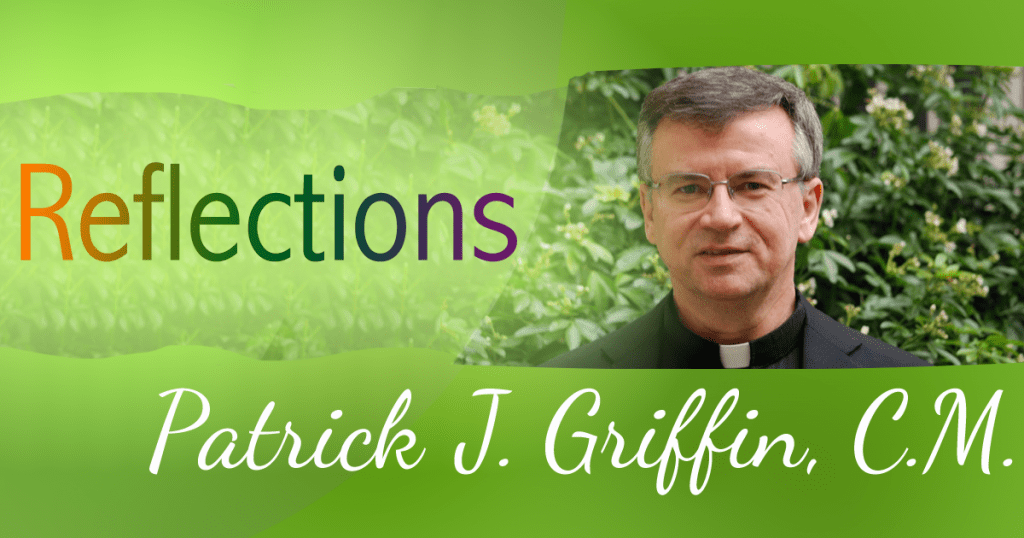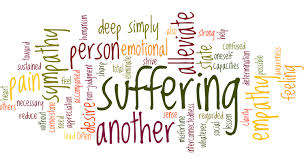
In his weekly series “Considering Consecrated Life” Father Pat Griffin reflects on Personal Judgment.
At the daily Eucharist during this past week, the First Book of Samuel provided the first reading. We heard the interesting story of the origin and commissioning of Samuel. One of the events in this narrative continues to stick in my mind.
You will remember that Hannah (the woman who would be the mother of Samuel) was without children, a source of great sorrow for her. On one occasion, she makes her way to the Temple in Shiloh to beseech the Lord for the blessing of a child. Eli, the high priest, notices her as she prays. Remember how the story unfolds:
As she continued praying before the LORD, Eli watched her mouth, for Hannah was praying silently; though her lips were moving, her voice could not be heard. Eli, thinking she was drunk, said to her, “How long will you make a drunken spectacle of yourself? Sober up from your wine!” “No, my lord!” Hannah answered. “I am an unhappy woman. I have had neither wine nor liquor; I was only pouring out my heart to the LORD. Do not think your servant a worthless woman; my prayer has been prompted by my deep sorrow and misery.” Eli said, “Go in peace, and may the God of Israel grant you what you have requested.” (1 Sam 1:12-17)
From one point of view, one might read this encounter in a humorous vein: to an unsympathetic eye, a woman in deep prayer looks drunk. From another point of view, one might wonder about Eli’s right to his judgment and his scolding of Hannah.
 Without arguing with the story, I have found myself thinking about how easy, and sometimes convenient, it can be to judge and misjudge people. This happens in the religious and political arena as well as in personal relationships. We attribute motives to others; we put words in their mouths; we evaluate their actions according to our own criteria. Sometimes we can do this without being aware of our prejudices, but that does not make the result any less harmful or wrong. Can you describe yourself in this way in some aspects of your life? I certainly can recognize a bit of Eli within myself.
Without arguing with the story, I have found myself thinking about how easy, and sometimes convenient, it can be to judge and misjudge people. This happens in the religious and political arena as well as in personal relationships. We attribute motives to others; we put words in their mouths; we evaluate their actions according to our own criteria. Sometimes we can do this without being aware of our prejudices, but that does not make the result any less harmful or wrong. Can you describe yourself in this way in some aspects of your life? I certainly can recognize a bit of Eli within myself.
For example, when I like someone, I can put the best interpretation on their words and actions. I can readily allow for a wisdom in their decisions which may not be justified. When that happens, I am not doing the other person a favor. I may be allowing these individuals to proceed in a way which does not benefit them or their goal. Perhaps, I should gently, or sometimes forcefully, challenge them on their thinking. Perhaps, I should hold them more responsible for the consequences of their actions. That may not always be easy when the other person is a friend or an ally who thinks like me. Yet, I must be attentive to the truth and a greater good. My judgment can be no less faulty in this direction as in the other.
Sometimes, I will not allow the other person any slack. I may disagree with him/her around a particular value or decision. This then colors every other matter with which the person becomes involved as I allow for no benefit or virtue to be associated with him. When this happens, categories can emerge which capture the other to my satisfaction without the necessity of deliberation: liberal, conservative, radical, feminist, racist, tree-hugger, pawn, and so on. These kinds of divisions simplify “thinking” and allow me to define myself and my position more easily.
Jesus teaches his disciples:
“Stop judging, that you may not be judged. For as you judge, so will you be judged, and the measure with which you measure will be measured out to you. Why do you notice the splinter in your brother’s eye, but do not perceive the wooden beam in your own eye?” (Mt 7:1-3)
The problem with making unqualified judgments of others does not rest simply in the fact that we may do harm to the other, but also in the reality that we lose sight of our own limitations and bad decisions. We should be critical. We should look at others and their positions with a critical eye, and that should influence our conclusions. We need to be open and honest in our evaluations to the extent that we can.
The story of Eli with Hannah makes me think. I hear the summons to look more carefully about the way in which I accept or reject others and their direction. The virtue of mercy which we emphasize in this Jubilee Year and the challenge of an election year will offer numerous opportunities to act justly and judge wisely from our Christian perspective.







0 Comments